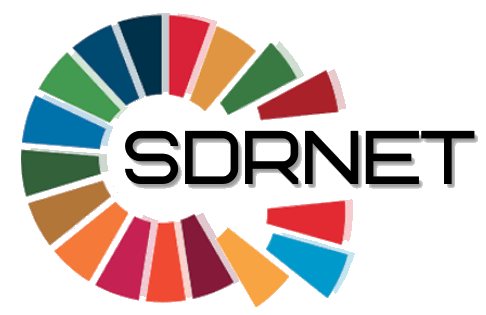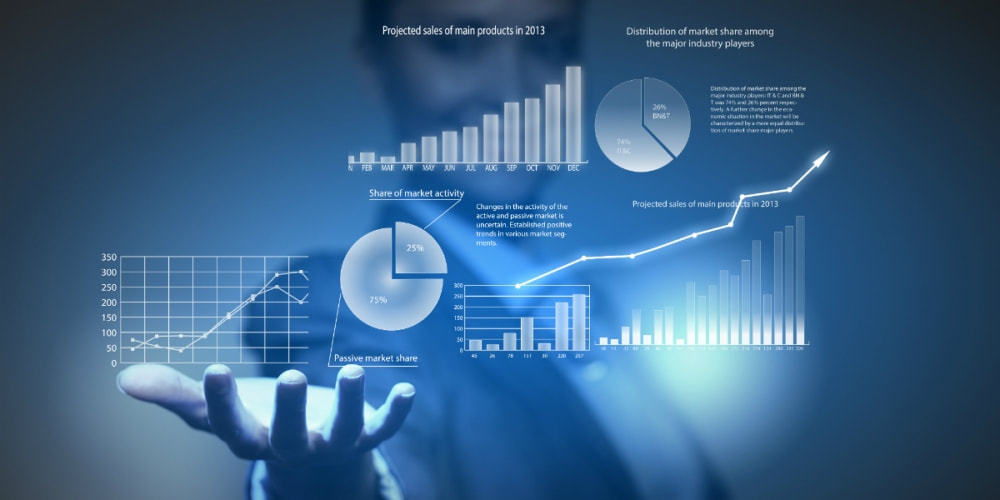|
The Problématique
Accelerating scientific research, development and innovation for a just and humanitarian transformation to sustainable development; the Sustainable Development Research Network (SDRNet) is synergizing the experience and reach of thousands of scientists and innovators worldwide to turn knowledge into action. In the COVID-19 crisis, we have all seen how crucial it is to have at hand smart researchers, clever innovators and entrepreneurial organisations with disruptive ideas and technologies that could pivot quickly into vaccine, treatment, healthcare application or other solutions. With SDRNet the University for Sustainability is making this effort permanent. We are creating a dynamic ecosystem of innovators and researchers who could respond quickly to calls for new ideas and solutions in an emergency – whether for wildfires, earthquakes, pandemics or other disasters. Global society is in the throes of a digital revolution that has transformed the way in which information and knowledge are acquired, stored, communicated and used. This is transforming the way we do science and shall better enable us to address the grand challenges of our times. The University for Sustainability has an obligation to positively contribute to this transformation and its outputs to a range of societal actors, including citizens, to address shared problems and enable the co-creation of actionable knowledge. In this connection we use the term "Science 2.0" to describe the on-going evolution in ways of doing and organising research. Science 2.0 is enabled by digital technologies, driven by globalisation and growth of the scientific community as well as the urgent need to address the grand challenges. The changes impact the modus operandi of the research, development and innovation cycle as well as the way the cycle is organised. The old distinctions between basic and applied science, and between science and technology, are no longer fit for purpose. Many of the significant problems faced by science and society are inherently complex. They concern the dynamic of systems that exhibit emergent properties including among others climate change and of pathways to sustainability. Researching these challenges almost invariably requires interdisciplinary collaboration. In this regard, the tools of Science 2.0, enhanced by the techniques of artificial intelligence, have created unprecedented opportunities to exploit such collaboration by integrating relevant data from disparate disciplinary sources. Yet our ability to combine data from heterogeneous sources and across disciplines remains limited. Moreover, the adoption of new data-intensive techniques across scientific communities and practices is uneven. Addressing these problems is crucial if we are to use to best effect the increasing quantities of diverse data to understand the complex adaptive systems that are at the heart of global challenges. Success will depend on active participation and engagement from all disciplines, including the social and human sciences, and by scientists from all parts of the world, including regions where data science capacities are limited. Ushering in an era of Science 2.0; leveraging open science and open innovation; the SDRNet is a state-of-the-art global knowledge platform accelerating the diffusion and absorption of breakthrough research and innovative solutions that catalyse transformation at scale and at speed. From siloed experimentation to network-driven collaboration, we are shifting the paradigm for how the research community, government and business engage with each other in accelerating toward sustainable development. Powered end-to-end by socially responsible Artificial Intelligence to make today’s scientific research more efficient, and tomorrow’s revolutionary, a network-wide research cloud shall offer high performance research computing as a service to provide new ways of doing science, harness data science for sustainable development, and enable world-class cross-disciplinary research collaboration and game-changing innovation. The Challenges and Opportunities
Despite the momentum gained since the signing of the Paris Agreement and the 2030 Agenda for Sustainable Development, the potential of the centres of research excellence development and innovation to contribute towards sustainable development has not been fully optimized. Knowledge gaps, isolated and fragmented knowledge bases, uneven access to and diffusion of SDG solutions, expertise and resources are major obstacles. There is a need to develop systematic multidisciplinary knowledge sharing and brokering to accelerate SDG solutions. By offering new and more efficient tools, digital transformation can increase connectedness among research centres, enhance the sharing of knowledge, optimize scientific data's usability and innovations and entrepreneurship opportunities to accelerate sustainable development. There is growing consensus around the effectiveness of Artificial Intelligenceenhanced knowledge and innovation platforms and the development of scalable solutions to address transnational SDG challenges. The SDRNet Solution
To respond systematically and effectively in supporting researchers and member organisations need to connect, learn and collaborate, the University for Sustainability developed SDRNet – a global knowledge and brokering platform. Powered by Artificial Intelligence, SDRNet is a vertical social network that connects and links centres of research excellence and independent researchers making it easier for SDRNet members to access, navigate and use a broad range of knowledge, good practices on Sustainable Development (SD), research, experts and members. It serves as an integrated solutions platform for SDRNet members in the University for Sustainability ecosystem. What is SDRNet?
SDRNet's mission is to accelerate discovery, development and adoption of sustainable development solutions and humanitarian action. By empowering the voices of the Global South, we can better understand the concepts, methodologies, policy implications and solutions to enable governments and practitioners to realize the full potential of South-South and SouthNorth cooperation towards a sustainable future for all. With a scalable digital platform, SDRNet bridges the gap between isolated and fragmented information systems and knowledge bases that hinder researchers and development practitioners from making new discoveries, the diffusion of knowledge, and the absorption of breakthrough research and innovative solutions that catalyse transformation at scale and at speed. Among the features that makes SDRNet unique is the integration of graph theory and AI algorithms to enable the discovery of new relationships and patterns hidden in semantically-enriched knowledge bases and match solution providers with needs. The platform automatically creates ever-more relevant recommendations and matchmaking suggestions for researchers, policy analysts and practitioners by using machine learning to provide the most relevant content, data, and good practices to enhance research productivity, knowledge sharing, and accelerate the diffusion of frontier sustainable development solutions. (Click here for a description of some of the technical details). SDRNet is a revolutionary digital knowledge platform:
tECHNICAL APPENDIX
Among sustainable development research communities, policy analysts and practitioners there are profound information asymmetries and siloed knowledge that inhibits the development, diffusion and absorption of scalable sustainable development solutions. At the same time, as more and more knowledge populates our digital ecosystem, it becomes increasingly difficult to process content and retrieve appropriate information. The SDRNet will add new value to vast stores of unused data. Indeed every 18 months we double the amount of data we produce, 85 per cent of which is never used. The challenge is not only to utilize but to optimize scientific data's usability and enable better discoverability of information, leveraging its hidden treasures and untapped opportunities to accelerate the transition to sustainability. SDRNet deploys a knowledge base using graph theory, Big Data and Artificial Intelligence (AI) to optimize scientific data for greater discoverability and usability. It is specifically designed and optimized for highly interconnected data sets to identify patterns and undisclosed contexts and knowledge. Our aim is to bridge the gap between isolated and fragmented information systems that hinder researchers from making breakthrough discoveries, enhance the development of science-based policy, accelerate innovation and responsibly harness advanced technologies for sustainable development. The SDRNet knowledge base helps sustainable development researchers and analysts uncover new ideas and findings, and apply them in their thinking and collaborations to drive breakthrough discoveries and frontier innovations. The knowledge base creates a domain of structured and unstructured data that aligns with how researchers and analysts cognitively organize information. Distinct from conventional data bases, our knowledge base adds a concept-aware or semantic model to our data sets. This includes a formal classification system with classes, sub-classes, relationships, instances (the occurrence of a class or object), and ontologies, but also transparent rules for interpreting data. In this domain, text analysis is used to create structured data out of unstructured and often highly disparate content. Text analysis involves the parsing of texts, for example, conducting morphological, grammatical and syntactical analysis in order to infer relationships and extract knowledge from exabyte scale data sets. Seamlessly integrating siloed data and fragmented knowledge, the SDRNet algorithms search for pathways, clusters, similarities and contextualization to synthesize semantically enriched meta-data from documents, organizations, institutions, funders, research grants, patents, clinical trials, substances, conference series, events, citations and reference networks and links to research data sets. The semantically enriched data provides a description of how information is related and can graphically represent the sustainable development research domain in new ways. In this manner, the SDRNet knowledge base offers a smart solution that analyses the research literature and data to facilitate the identification of breakthrough knowledge by:
Accelerating the quest for meaningful information by revealing the interconnected complexities latent in your data sets and breakthrough knowledge discovery, semantic technology is:
Distinct from a data base with a flat structure and static content, the SDRNet knowledge base advances discovery and innovation by offering robust and insightful research, supporting the development of sustainable development knowledge, making ideas and information accessible and discoverable by:
The impact of AI-driven semantic technologies and knowledge graphs on the way we conduct research, discovery and innovation is revolutionary. Its implications range from discovering non-obvious relationships between facts through predictive analytics, to conversations with cognitive systems. Eroding information asymmetries and siloed knowledge, the SDRNet knowledge base takes us further on our quest for meaningful information, knowledge discovery and innovation. It promises to bridge the gap between isolated and fragmented information systems that hinder researchers from making breakthrough discoveries, accelerating innovation and harnessing frontier technologies for sustainable development. Whether you are an academic, government, corporate or NGO researcher register for free to:
|
Non-Discrimination Policy*
“All human beings are born free and equal in dignity and rights." These simple but powerful words are the first line of the Universal Declaration of Human Rights adopted by the United Nations in 1949. The declaration’s power has always depended on our collective will to uphold its noble aspirations.
The University for Sustainability does not discriminate on the basis of race, color, creed, national origin, gender, sexual orientation, age, or disability in any of its policies, procedures, or practices, in compliance with Title VI of the U.S. Civil Rights Act of 1964, Title IX of the Education Amendments of 1972, Section 504 of the Rehabilitation Act of 1973, the Age Discrimination Act of 1975, and Title II of the Americans with Disabilities Act of 1990. This non-discrimination policy covers admission and access to, and treatment and employment in, the University's programs and activities. The University recognizes its obligation to provide overall program accessibility for disabled persons.
Nothing in this policy shall abridge academic freedom or the University's mission. Prohibitions against discrimination and discriminatory harassment do not extend to actions, statements or written materials that are relevant and appropriately related to course subject matter or academic debate.
This policy governs the conduct of all University for Sustainability students, faculty, staff and visitors that occurs on the University’s facilities or in connection with University-sponsored programs. This policy also governs conduct by University students, faculty, staff and visitors that creates, contributes to, or continues a hostile work, educational, or living environment for a member or members of the University community.
_______________________________________________
* Approved by the Board of Directors on 10 November 2019.
“All human beings are born free and equal in dignity and rights." These simple but powerful words are the first line of the Universal Declaration of Human Rights adopted by the United Nations in 1949. The declaration’s power has always depended on our collective will to uphold its noble aspirations.
The University for Sustainability does not discriminate on the basis of race, color, creed, national origin, gender, sexual orientation, age, or disability in any of its policies, procedures, or practices, in compliance with Title VI of the U.S. Civil Rights Act of 1964, Title IX of the Education Amendments of 1972, Section 504 of the Rehabilitation Act of 1973, the Age Discrimination Act of 1975, and Title II of the Americans with Disabilities Act of 1990. This non-discrimination policy covers admission and access to, and treatment and employment in, the University's programs and activities. The University recognizes its obligation to provide overall program accessibility for disabled persons.
Nothing in this policy shall abridge academic freedom or the University's mission. Prohibitions against discrimination and discriminatory harassment do not extend to actions, statements or written materials that are relevant and appropriately related to course subject matter or academic debate.
This policy governs the conduct of all University for Sustainability students, faculty, staff and visitors that occurs on the University’s facilities or in connection with University-sponsored programs. This policy also governs conduct by University students, faculty, staff and visitors that creates, contributes to, or continues a hostile work, educational, or living environment for a member or members of the University community.
_______________________________________________
* Approved by the Board of Directors on 10 November 2019.
|
© 2018 University for Sustainability The University for Sustainability is a U.S. registered 501(c)(3) tax exempt organisation All Rights Reserved. Terms of Use | Privacy Policy
|
|







